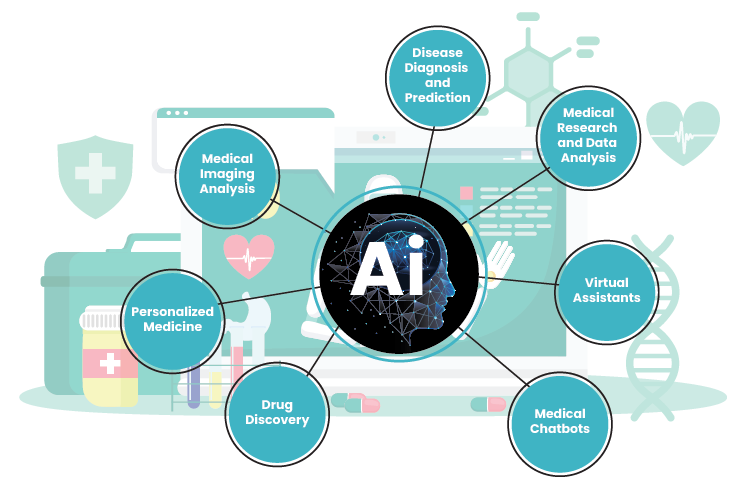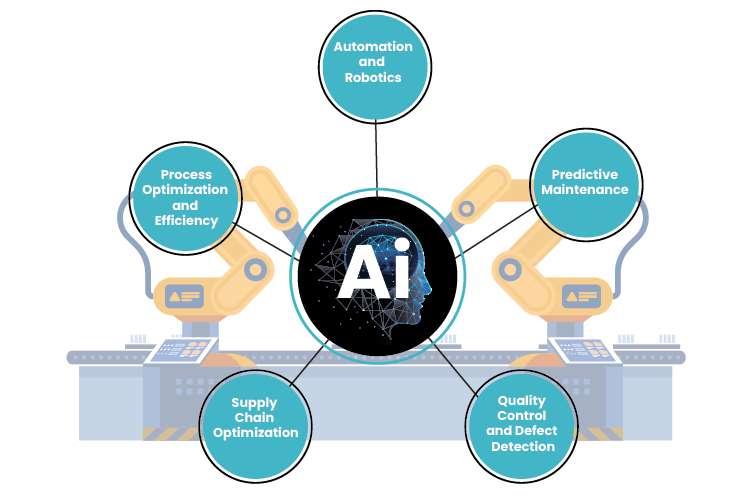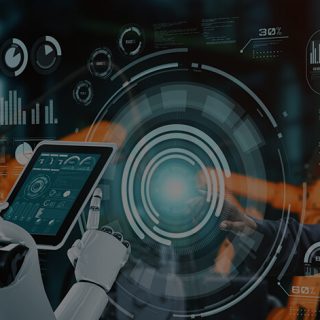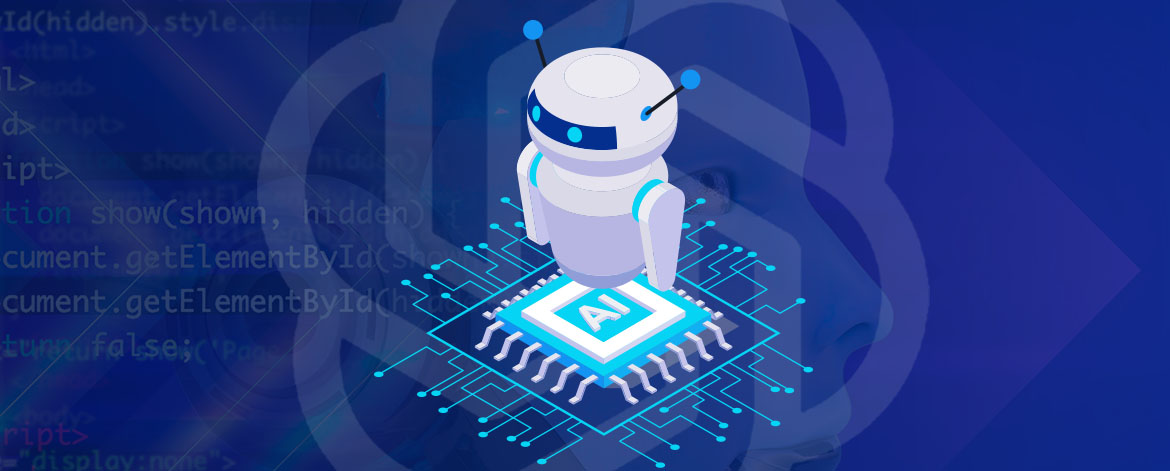In today’s digital landscape, artificial intelligence (AI) has become a driving force, reshaping problem-solving and decision-making. At the forefront of this transformation are AI tools, powerful software applications that harness AI techniques to tackle complex tasks and unlock new possibilities in diverse industries.
In this blog, we embark on a captivating journey into the world of AI tools, unveiling the techniques that make them so potent and exploring the immense potential they hold in reshaping industries and propelling us into a future of unprecedented possibilities.
Essential Technologies for Developing an AI Tool
Developing an AI tool involves leveraging various technologies to build, train, and deploy the tool effectively. Let’s explore the technology that was involved in developing an AI tool:
- Machine Learning and Deep Learning Frameworks: Machine learning and deep learning frameworks provide the foundation for developing AI tools. Popular frameworks like TensorFlow, PyTorch, Keras, and scikit-learn offer pre-built algorithms, neural network architectures, and APIs for training and inference.
- Natural Language Processing (NLP) Libraries: NLP libraries enable the processing and understanding of human language in AI tools. Libraries such as NLTK (Natural Language Toolkit), Spacy, and Gensim provide functionalities for text preprocessing, part-of-speech tagging, named entity recognition, sentiment analysis, and language modeling.
- Neural Networks and Deep Learning Architectures: Neural networks, including convolutional neural networks (CNNs), recurrent neural networks (RNNs), and transformer models, are core components of many AI tools. Implementing and customizing these architectures using frameworks like TensorFlow and PyTorch is crucial for building powerful AI models.
- Cloud Computing: Cloud platforms, such as Amazon Web Services (AWS), Google Cloud Platform (GCP), and Microsoft Azure, offer scalable infrastructure and services for AI tool development. These platforms provide GPU instances, distributed computing capabilities, managed AI services, and storage options for training and deploying AI models.
- Data Management and Processing: Streamlined data management is crucial for AI tools. Technologies like Apache Hadoop, Apache Spark, and Apache Kafka enable big data processing, storage, and streaming, allowing developers to handle large datasets efficiently.
- Containerization and Orchestration: Containerization technologies like Docker facilitate the packaging and deployment of AI tools and their dependencies. Container orchestration platforms like Kubernetes streamline container management, scaling, and load balancing for seamless deployment and operation.
- Model Deployment and Serving: Technologies like TensorFlow Serving, Flask, FastAPI, and Django facilitate the deployment and serving of AI models as APIs or web services. These technologies allow integration with other systems, providing access to AI tool functionality.
- Big Data Analytics and Visualization: AI tools often require analyzing and visualizing large datasets. Technologies like Apache Spark, Apache Hadoop, Elasticsearch, Kibana, and Tableau assist in processing and analyzing big data, extracting insights, and creating interactive visualizations.
- DevOps and CI/CD Tools: DevOps practices and tools, including continuous integration and continuous deployment (CI/CD), streamline the development, testing, and deployment of AI tools. Tools like Jenkins, GitLab CI/CD, and CircleCI automate building, testing, and deploying AI models, ensuring code quality and efficient software delivery.
- Reinforcement Learning Frameworks: In some cases, AI tools incorporate reinforcement learning techniques. Frameworks like OpenAI Gym, Stable Baselines, and RLlib provide environments, algorithms, and tools for developing and training AI agents using reinforcement learning.
Diverse Use Cases of AI Tools Across Industries
- AI Tools for Healthcare: Medical Imaging Analysis & Drug Discovery

-
- Medical Imaging Analysis: AI tools revolutionize the accuracy, speed, and efficiency of diagnosing diseases through advanced medical imaging analysis. By analyzing vast amounts of data from X-rays, CT scans, MRIs, and mammograms, AI-powered algorithms swiftly and accurately identify abnormalities, pinpoint potential areas of concern, and aid radiologists in making precise diagnoses. The result is enhanced patient care and improved outcomes in the field of medical/healthcare imaging.
- For example, AI tools can help detect early signs of cancer in mammograms, reducing false negatives and improving early detection rates. By leveraging deep learning and computer vision techniques, AI tools aid in identifying subtle patterns and anomalies that may be missed by human eyes, enabling early intervention and improved patient outcomes.
- Drug Discovery and Development: AI tools revolutionize the traditionally time-consuming and expensive process of drug discovery and development. Using machine learning algorithms, these tools analyze vast datasets, including molecular structures, biological interactions, and clinical trial data. By uncovering patterns and relationships, AI tools aid in identifying potential drug candidates, predicting efficacy, and optimizing the development process. This accelerates treatment discovery, streamlines clinical trials, and reduces costs associated with bringing new drugs to market, ushering in a new era of pharmaceutical innovation.
- AI Tools for Manufacturing: Predictive Maintenance & Defect Detection

-
- Predictive Maintenance: AI tools drive transformative maintenance practices in manufacturing through predictive maintenance strategies. Utilizing machine learning algorithms, these tools analyze real-time sensor data from equipment and machinery. By detecting patterns and anomalies, AI tools can predict potential failures or maintenance needs in advance. This enables proactive maintenance scheduling, minimizing unplanned downtime, optimizing resources, and reducing overall costs. Predictive maintenance with AI tools enhances equipment reliability, boosts operational efficiency, and extends the lifespan of critical assets, ushering in a new era of maintenance excellence.
- Quality Control and Defect Detection: AI tools revolutionize manufacturing quality control through automated defect detection and assurance of product quality. Leveraging computer vision techniques and machine learning algorithms, these tools analyze images or visual data captured during production. By comparing the images to predefined quality standards, AI tools swiftly identify defects, anomalies, or deviations in real-time. This early detection enables prompt corrective actions, enhancing production efficiency, reducing scrap and rework, and ensuring consistent delivery of high-quality products that exceed customer expectations. AI-powered quality control systems drive manufacturing excellence and customer satisfaction.
About VOLANSYS
VOLANSYS is a leading technology solutions provider with extensive expertise in the field of Artificial Intelligence (AI). With a dedicated focus on AI-driven solutions, we empower businesses to leverage intelligent technologies and develop cutting-edge solutions tailored to their unique needs. Our expertise in AI techniques, coupled with deep domain knowledge, enables us to deliver innovative AI solutions that unlock new possibilities and provide a competitive advantage in the AI-driven world.
Check out our success stories showcasing our experiences with AI/ML and read our insightful AI/ML blogs written by our experts, based on the extensive knowledge and experience they have developed.

About the Author: Amartya Singh
Shruti is a Senior Marketing Executive at VOLANSYS, which is a part of ACL Digital Company. She brings valuable expertise in content creation, managing partnerships, promoting brands, digital marketing, generating leads, and developing marketing materials. With over 6 years of experience in sales and marketing, she brings valuable expertise to her role.









